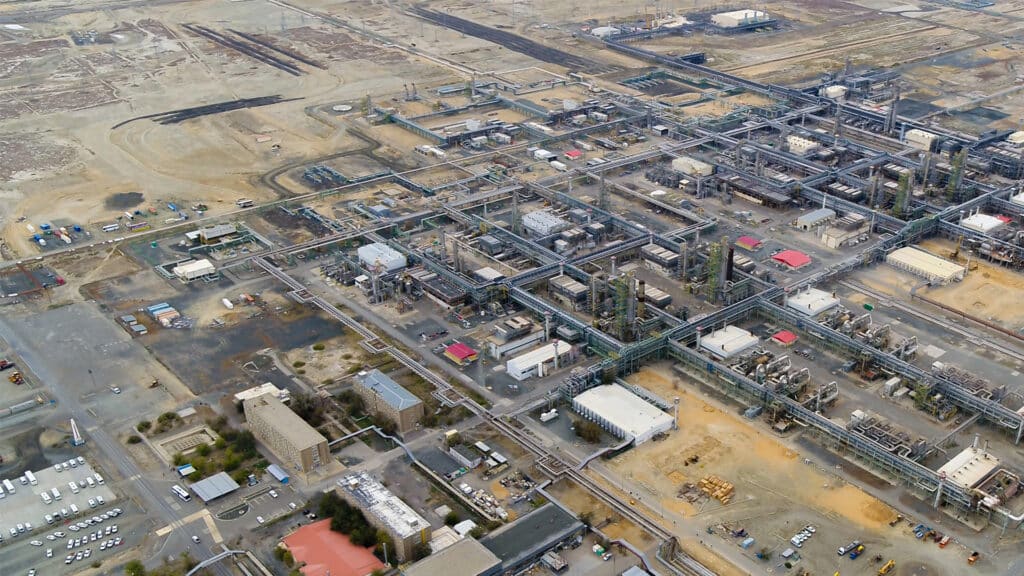
Between January and May 2025, Kazakhstan’s Tengiz field produced 15.9 million tons of crude oil, according to KazMunayGas (KMG), the national oil and gas company. Output at the country’s largest oil and gas field is now projected to reach 35.7 million tons by the end of the year, an upward revision from an earlier forecast of 34.8 million tons. Tengiz produced 27.8 million tons in 2024.
KMG CEO Askhat Khassenov recently met with Clay Neff, president of Chevron International Exploration and Production, to discuss bilateral cooperation. Topics included the implementation of large-scale oil and gas projects, industrial safety and increasing the share of Kazakhstani content in operations.
The parties highlighted the successful launch of the Future Growth Project (FGP) facilities at Tengiz earlier this year. Khassenov emphasized the importance of maintaining stable production levels following the FGP launch and ensuring compliance with design and subsoil use standards.
The meeting also addressed the development of a long-term domestic value program, as Kazakhstan has tasked Tengizchevroil (TCO), the field’s operator, with increasing the share of Kazakhstani-produced goods from 7% to 30%.
Discussions extended to joint geological exploration efforts, including updates on the Mugalzhar project.
Once all facilities are fully operational, annual output at Tengiz is expected to reach about 40 million tons, an increase of 12 million tons from current levels. TCO estimates that this expansion will generate additional revenue for Kazakhstan through taxes, royalties and other direct financial contributions. As of June, KMG confirmed that Tengiz was operating at full capacity.
Chevron has forecast net cash flow for TCO of $4 billion in 2025 and $5 billion in 2026, assuming a Brent crude oil price of $60 per barrel.
The total proven oil reserves at Tengiz amount to 3.1 billion tons (25 billion barrels), while reserves at the Korolev field, also operated by TCO, total 200 million tons (1.6 billion barrels). The combined recoverable reserves at both fields are 1.4 billion tons (11.5 billion barrels).
TCO is a joint venture controlled by U.S.-based Chevron (50%), ExxonMobil (25%), KazMunayGas (20%) and the Russian oil company Lukoil (5%).
Earlier projections by Halyk Finance estimated that Tengiz would produce 34.7 million tons of oil in 2025, a 24.8% increase from 2024.

